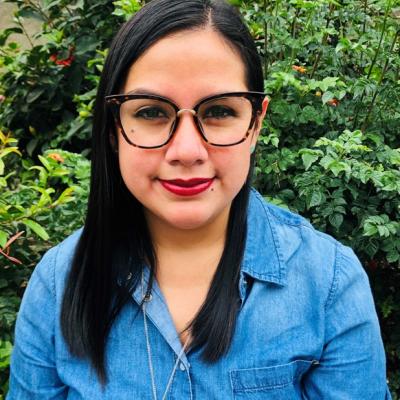Protected Natural Areas (PNA) are key to the global effort to conserve biodiversity and adapt to and mitigate the effects of climate change. These landscapes are managed by a broad range of actors with different priorities, interests, governance systems, legal frameworks, development goals and forms of knowledge, all framed by international agreements such as the Sustainable Development Goals, the Convention on Biological Diversity and the Paris Agreement.
For decades, PNAs were seen solely as spaces dedicated to biodiversity preservation, often managed under a fortress conservation model that treated these areas as “islands”, isolated havens of nature, untouched by the impacts of human activities. This approach frequently led to the exclusion—or even displacement—of Indigenous Peoples, local communities and Afro-descendant Peoples who had long lived and managed these areas. Their land and resource rights were often restricted and their participation sidelined, negatively impacting their livelihoods, cultural identities and well-being. In some cases, the introduction of conservation areas fuelled social tensions and undermined food sovereignty and local governance systems, triggering conflicts.
That view is now starting to change. Rights-based approaches place access to, recognition of, and respect for the individual and collective rights of Indigenous Peoples, local communities and Afro-descendant Peoples at the centre of conservation planning, implementation and monitoring in their territories. These approaches promote a transformative change, where these communities are no longer viewed as passive subjects or mere beneficiaries of conservation initiatives but as autonomous rights-holders with their own goals—whose participation in co-defining conservation objectives is essential.
This shift is partly supported by growing evidence that conservation works better when local populations are involved. Collaborative governance, which contrasts with models that exclude or limit local participation, contributes both to stronger outcomes and to the correction of historical injustices. For too long, Indigenous Peoples, local communities and Afro-descendant Peoples—despite living in and holding rights over key ecosystems— have been sidelined in the decisions affecting them.
The adoption of the Kunming-Montreal Global Biodiversity Framework (GBF-KM) in 2022 marked a turning point. Rights-based approaches are now explicitly recognized as key considerations for implementation. In particular, Target 22 seeks to guarantee respect for the rights of Indigenous Peoples, local communities and Afro-descendant Peoples as biodiversity stewards and partners in conservation, ensuring their full and effective representation and participation in all relevant decision-making processes.
Nonetheless, building truly inclusive and equitable collaboration is complex. A wide array of actors operate in these spaces, each with different interests, capacities, and levels of access to decision-making. These asymmetries can hinder the participation and influence of historically marginalized groups and limit their role in shaping the governance of PNAs and conservation policies more widely.

Community in the buffer zone of Yanachaga-Chemillén National Park, Peru. Photo by Marlon del Águila / CIFOR-ICRAF
The Conservation Dialogues initiative
To help close these gaps, the Governance, Equity and Well-being research team at the Center for International Forestry Research and World Agroforestry (CIFOR-ICRAF) is leading “Conservation Dialogues: Promoting Constructive Interactions Between Communities and Conservation Areas in the Amazon”—an initiative supported by the Gordon and Betty Moore Foundation and the Climate and Land Use Alliance (CLUA).
Conservation Dialogues is an action-research project that explores the dynamics of the interactions between Indigenous Peoples, local communities, Afro-descendant Peoples and conservation area managers in the Amazonian regions of Bolivia, Colombia, Ecuador and Peru. The project aims to strengthen rights-based approaches to conservation by developing tools for the collaborative management of PNAs and by co-creating roadmaps that link policies with practices to support more inclusive and effective conservation efforts.
Launched in September 2024, the project held its first round of national dialogues in each of the four participating countries in February 2025. These brought together more than 100 participants, including representatives of national and subnational governments, NGOs, international cooperation agencies, research institutions and Indigenous and local community representatives—all key stakeholders involved in managing conservation areas across the Amazon region.
These dialogues revealed that, while political and legal frameworks vary across the region, conservation areas share common opportunities and face similar challenges to advance collaborative, rights-based governance. The shared priorities identified include:
- Creating economic incentives that align with local contexts and priorities;
- Developing practical tools to support the implementation of legal frameworks for participation;
- Integrating diverse knowledge systems—both local and technical—to strengthen conservation efforts.
Alongside the dialogues, the initiative conducted research with 16 case studies that represent a wide variety of conservation areas with different governance models and protection levels. This research will contribute to a comparative analysis to identify lessons, challenges and opportunities for strengthening rights-based conservation in the region. Furthermore, project outputs will also assess gaps and opportunities within the political and legal frameworks of the four countries under study.
A second round of dialogues in May 2025 will focus on the participatory development of national roadmaps to strengthen rights-based conservation implementation. Finally, the project will collaborate with Peru’s National Service of State-Protected Natural Areas to develop the second edition of “How are we doing?”—a monitoring tool that supports more equitable participatory processes as part of conservation area management.
Conservation Dialogues is part of CIFOR-ICRAF’s wider efforts to generate evidence-based recommendations for more inclusive conservation. By placing rights and equity at the centre, the initiative seeks to support conservation models that serve both nature and people.
This article was translated from the original Spanish version, available on Los Bosques: https://forestsnews.cifor.org/91701
We want you to share Forests News content, which is licensed under Creative Commons Attribution-NonCommercial-ShareAlike 4.0 International (CC BY-NC-SA 4.0). This means you are free to redistribute our material for non-commercial purposes. All we ask is that you give Forests News appropriate credit and link to the original Forests News content, indicate if changes were made, and distribute your contributions under the same Creative Commons license. You must notify Forests News if you repost, reprint or reuse our materials by contacting forestsnews@cifor-icraf.org.















